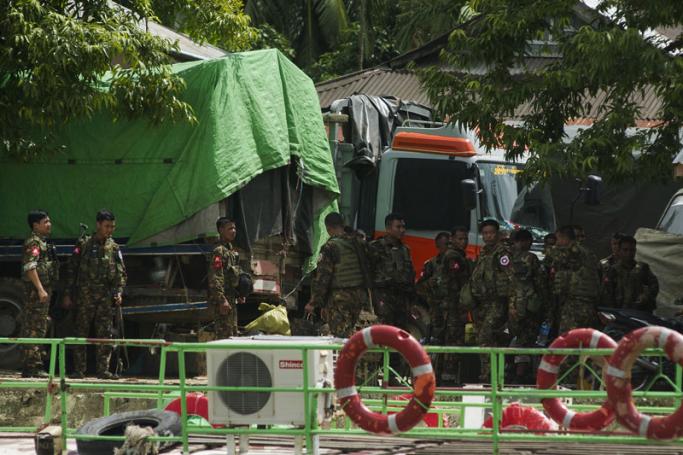The United States said Monday it had found evidence of systematic violence by Myanmar's military against the Rohingya minority, including widespread killings and rape.
The State Department released the report just as the United States announced $185 million in new funding for Rohingya refugees during a meeting at the United Nations on Myanmar.
The State Department study, based on interviews in April with 1,024 Rohingya adults who have taken refuge in neighbouring Bangladesh, provided accounts consistent with reports from human rights groups but kept largely to dispassionate descriptions of events.
The report notably avoided using the terms genocide or ethnic cleansing to describe the mass killings of the Rohingya, a mostly Muslim group concentrated in Rakhine state that is despised by many in Buddhist-majority Myanmar and who are not considered citizens.
"The survey reveals that the recent violence in northern Rakhine State was extreme, large-scale, widespread and seemingly geared toward both terrorizing the population and driving out the Rohingya residents," said the report by the State Department's Bureau of Intelligence and Research.
"The scope and scale of the military's operations indicate they were well-planned and coordinated," it said.
- Help for refugees -
More than 700,000 Rohingya have taken refuge in Bangladesh, fearful of returning to Myanmar despite a repatriation deal between the two countries.
Meanwhile, Britain hosted a meeting of about a dozen foreign ministers that was also attended by Minister for Myanmar's State Counsellor Kyaw Tint Swe and International Cooperation Minister Kyaw Tin, although Suu Kyi did not come to New York.
Fresh from a visit to Myanmar, British Foreign Secretary Jeremy Hunt warned that military leaders must answer for any atrocities committed against the Rohingya.
"If, in a year's time, we have not made a meaningful difference to the lives of the million or more people affected, then we have failed as an international community," Hunt told the closed meeting, according to the spokesperson.
US Ambassador Nikki Haley announced the $185 million for food, water, health care and other critical aid to the refugees, even as the United States dramatically scales back its admission of refugees.
Japan, which has pursued close ties with the country whose former junta was allied with China, urged Myanmar to create conditions for the refugees' return but also called for support of the civilian government.
Foreign Minister Taro Kono "emphasized that democracy in Myanmar is still in a very preliminary stage and, in order for Myanmar not to backtrack to its former military regime, the support of the international community is necessary," spokesman Takeshi Osuga said.
Myanmar's army chief Min Aung Hlaing was recently quoted in a newspaper as telling his troops that no country, organization or group has the "right to interfere in and make decisions over sovereignty of a country."
© AFP












